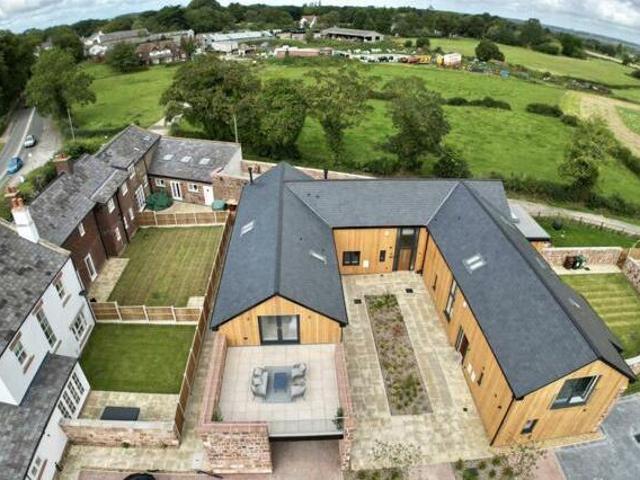On a brisk autumn morning, as the sun rises over the rolling hills of County Antrim, John steps out onto his newly acquired farm. The crisp air is filled with the scent of damp earth and the sound of birdsong. Looking out over the 50 acres of lush green pasture, he feels a deep sense of fulfillment. This was the dream—leaving behind the noise of city life for the simplicity and hard work of managing his land. After months of research, negotiations, and long drives through Northern Ireland’s winding country roads, John had finally found the perfect farm to call his own. Northern Ireland, with its rich agricultural heritage and stunning landscapes, is an appealing destination for anyone investing in farmland. Whether you are an experienced farmer or a city dweller seeking a rural escape, the country offers a range of opportunities. From small family farms to more extensive commercial operations, the market for farms for sale Northern Ireland is diverse and growing.
The Agricultural Landscape of Northern Ireland
Northern Ireland has a rich agricultural history and continues to play a significant role in its economy. As of 2023, agriculture contributes nearly £2 billion annually to Northern Ireland’s economy and employs over 49,000 people across the region (Department of Agriculture, Environment, and Rural Affairs, 2023). The landscape—characterized by rolling hills, fertile plains, and abundant rainfall—makes Northern Ireland ideal for livestock farming and crop production.
Approximately 75% of Northern Ireland’s land is used for agricultural purposes, with livestock farming (particularly beef and dairy) being the most prevalent sector. Dairy farms alone account for around 27% of the total agricultural output in the country. Sheep farming is also widespread, especially in mountainous regions like the Mourne Mountains and the Sperrin Range. On the arable side, cereals, potatoes, and vegetables are the primary crops grown (DAERA Agricultural Census, 2023).
This solid agricultural tradition and the picturesque landscape make Northern Ireland an attractive location for those seeking to buy farms, whether for commercial farming or as a lifestyle change.
Types of Farms for Sale in Northern Ireland
The farms available for sale in Northern Ireland are as diverse as its landscape. Depending on your goals—whether you want to raise livestock, grow crops, or enjoy a peaceful rural life—there are options for every buyer. Below, we break down the most common types of farms on the market.
- Livestock Farms
Livestock farming, particularly dairy and beef cattle, is the backbone of Northern Ireland’s agricultural industry. Farms specializing in livestock can range in size from small, family-owned farms to large-scale operations.
- Beef and Dairy Farms: Dairy and beef farming are integral parts of the local economy, so many farms for sale are equipped with facilities like milking parlors, barns, and livestock shelters. In prime farming regions like County Tyrone, a typical dairy farm could range from 50 to 200 acres, with prices starting around £1.5 million for larger farms that include modern farming equipment and high-quality pastureland (PropertyPal, 2023).
- Sheep Farms: Northern Ireland’s cooler climate and rolling hills make it ideal for sheep farming, particularly in areas such as County Down and County Fermanagh. Sheep farms tend to be more affordable, with prices starting around £600,000 for farms of 100 acres or more, depending on the quality of the land and the infrastructure provided (Ulster et al., 2023).
- Arable Farms
Though livestock farming dominates, arable farming is also a significant part of Northern Ireland’s agricultural scene. Cereal crops, potatoes, and vegetables are grown on large tracts of fertile land, especially in the country’s east, near counties Antrim and Armagh.
- Cereal and Potato Farms: With their nutrient-rich soils and relatively mild climate, Northern Ireland’s arable farms can produce high yields. Farms dedicated to cereals and potatoes often include large, flat, well-drained land areas. A 100-acre arable farm might cost around £800,000 to £1.2 million, depending on its location and soil quality (Land & Property Services, 2023).
- Mixed-Use Farms: Mixed-use farms, which combine livestock and arable farming, are increasingly popular. These farms offer flexibility, allowing farmers to diversify their income by raising livestock and growing crops. A mixed-use farm with 150 acres could sell for around £1.3 million (Savills UK, 2023).
- Smallholdings and Hobby Farms
Smallholdings and hobby farms are abundant across Northern Ireland for those looking for a smaller-scale operation or simply a rural retreat. These properties typically include 10 to 50 acres of land and may be used to raise a few animals, grow vegetables, or enjoy a rural lifestyle.
- Smallholdings: These smaller farms can be perfect for individuals or families seeking a lifestyle change, where they can grow food and enjoy a slower pace. Prices for smallholdings in Northern Ireland start as low as £250,000, depending on the land size and the farmhouse’s condition (PropertyNews, 2023).
- Hobby Farms are ideal for people who want to keep a few animals or grow crops on a part-time basis without the pressures of running a full-scale farm. Hobby farms, with around 10 to 20 acres, can cost anywhere from £200,000 to £400,000, depending on location and amenities (Homes.co.uk, 2023).
Farm Prices and Market Trends
The real estate market for farms in Northern Ireland has been relatively stable over the past few years. Still, it has seen some fluctuations due to external factors like Brexit, changes in agricultural policy, and the COVID-19 pandemic. According to the Royal Institution of Chartered Surveyors (RICS), the average price of agricultural land in Northern Ireland was around £9,500 per acre in 2023, making it one of the more affordable regions in the UK for purchasing farmland.
Price Influencers
Several factors influence the price of farmland in Northern Ireland:
- Location: Farms closer to urban centers like Belfast or near major roads tend to command higher prices due to better market access.
- Land Quality: High-quality pastureland or fertile arable land is more expensive. Poorer-quality land, such as rough grazing or hill farms, is generally cheaper.
- Infrastructure: Farms equipped with modern barns, milking parlors, grain storage, and other essential farming infrastructure will naturally be priced higher.
Overall, demand for farmland in Northern Ireland remains strong, particularly as more individuals look to move away from urban areas and invest in rural properties. The pandemic has accelerated this trend, with more buyers seeking the tranquility of the countryside, pushing prices for smallholdings and hobby farms higher in 2021 and 2022. This trend is expected to continue, with rural properties remaining desirable for those looking for a new way of life or an investment opportunity.
Challenges and Opportunities
While owning a farm in Northern Ireland offers numerous rewards, it also comes with challenges. Farmers must navigate changing agricultural policies, fluctuating commodity prices, and environmental regulations, particularly in the wake of Brexit. Additionally, Northern Ireland’s climate, characterized by heavy rainfall, can pose challenges for specific crops.
However, there are significant opportunities as well. Northern Ireland is known for producing high-quality food products, and demand for organic and locally sourced produce is growing. New farmers may also benefit from government grants and subsidies to support sustainable farming practices and rural development initiatives (DAERA, 2023).
Conclusion
For anyone dreaming of a life in the rolling countryside, Northern Ireland offers an array of opportunities to invest in farmland. Whether you are looking for a large-scale dairy farm, an arable farm to grow crops, or a smallholding for a peaceful rural lifestyle, the region has something for everyone. The beauty of Northern Ireland’s agricultural landscape and rich farming traditions make it an attractive destination for seasoned farmers and those new to the land.
With relatively affordable land prices, various farm types available, and solid agricultural infrastructure, Northern Ireland remains one of the best regions in the UK to buy a farm. However, as demand for rural properties continues to rise, potential buyers should act quickly to secure their piece of Northern Ireland’s idyllic farmland.






